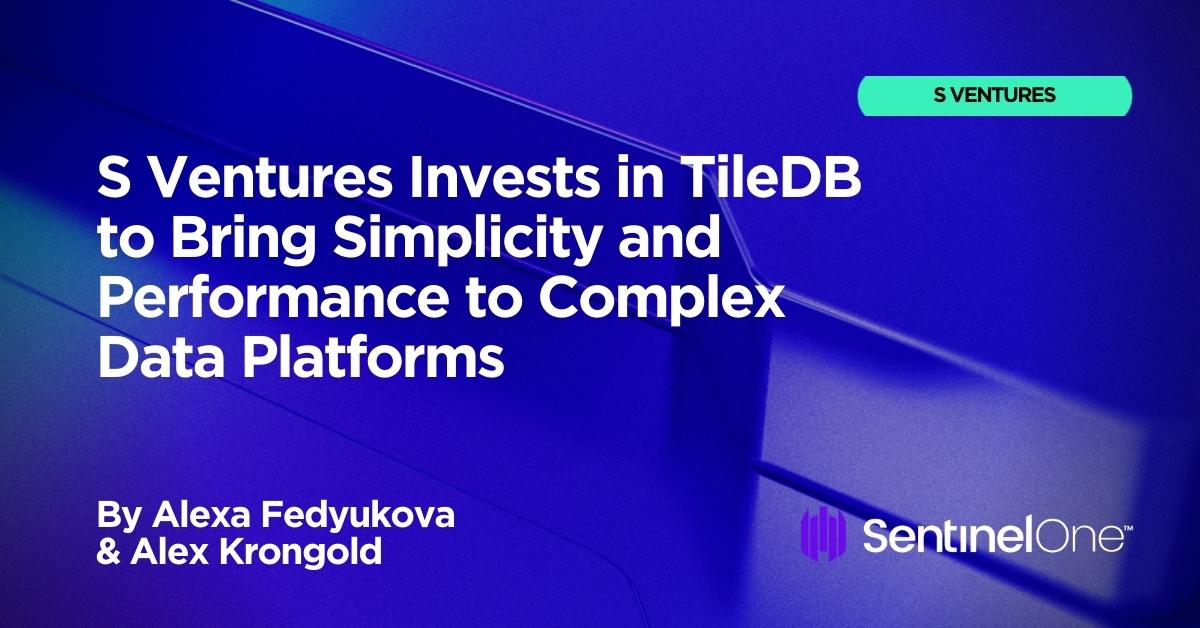It’s not everyday that an idea emerges from academia with the potential to disrupt existing approaches and technologies. That’s why S Ventures is excited about our recent investment in TileDB, a universal data platform that unifies all types of data (and associated code) along with the complex infrastructure surrounding that data into a single solution. TileDB adapts its internal structure to optimize advanced applications across virtually any data schema.

When most people think of a database, they picture a set of data organized in columns and rows that create a logical relationship, like an Excel spreadsheet that lists sales by product. The data is typically stored as text or numerical data types and users would access and filter the data with a structured query language (or SQL). With the proliferation of the internet, social media, IoT devices, and other digital platforms, the amount of unstructured data being generated is enormous. It’s estimated that unstructured data accounts for more than 80% of the data generated globally.
Unstructured data comes in many formats – from text and images to videos and sensor data. This diversity makes it challenging to process and analyze using traditional database systems. Add in the complexity of new data formats, specialized point tools for visualization, machine learning, and DevOps in a fragmented cloud-native environment (where compute and storage are separated) and it’s no wonder every enterprise has a data problem – rigid access, limited mobility, and lack of holistic governance – and spend inordinate amounts of money and effort building large data engineering teams.
The team at TileDB has an audacious vision to reclaim simplicity and performance in the face of modern challenges, starting with the most challenging use cases in geospatial, life science, and machine learning with some of the world’s most complex enterprises.
TileDB accomplishes this with a powerful, universal data structure, called the multi-dimensional array. Arrays can shape-shift to efficiently store and process any kind of data, from tables, to images, genomics, weather, graphs, key-values, point clouds, flat files and more. TileDB allows users to build, maintain and run any sophisticated ETL process, pipeline, workload or query algorithm, inside its serverless distributed computing environment. Keeping data, code and compute in a single place eliminates silos, reduces total cost of ownership and increases productivity and collaboration across teams and individuals.
Please join us in congratulating TileDB on their Series B and learn more about what they are building at tiledb.com.
